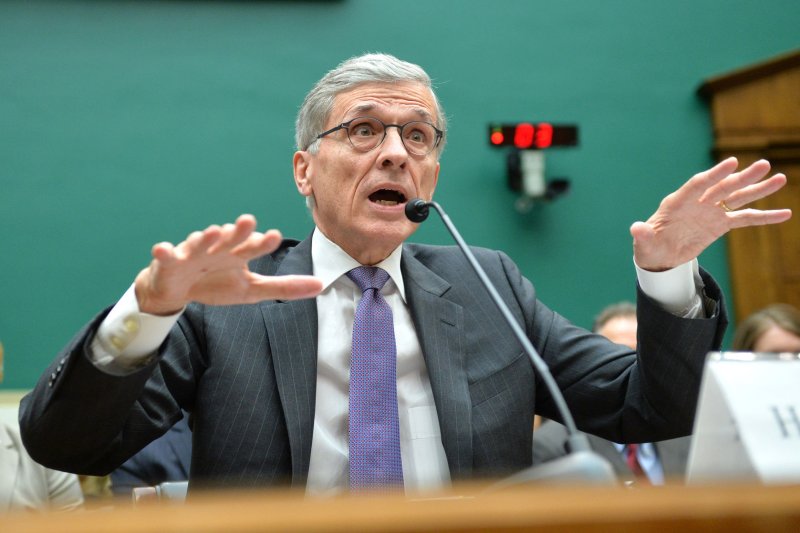Federal Communications Commission (FCC) Chairman Tom Wheeler said he is cooperating with the FCC Inspector General's investigation. Photo by Kevin Dietsch/UPI |
License Photo
WASHINGTON, May 6 (UPI) -- An investigation has been launched into the leak of private information ahead of a vote to offer Internet subsidies to low-income Americans.
Federal Communications Commission Chairman Tom Wheeler said that he is fully cooperating with the probe, which is being carried out by the FCC's Inspector General.
It has been alleged that Wheeler's office leaked news of a bid to impose a strict $2 billion budget cap on the program, called Lifeline. His aim, it's claimed, was to scuttle the deal, reports The Hill.
His Democratic colleague Mignon Clyburn had earlier negotiated changes to Wheeler's plans in order bring Republicans on board.
But after intense lobbying by Democrats and backroom negotiations lasting more than three hours, the five commissioners passed Wheeler's original proposal without the Republicans' support.
In a letter to Senate Commerce Chairman John Thune this week, Wheeler did not acknowledge that his office leaked the information, but he said that the FCC chairman's office has the ability to release private information "if it is in the interest of the agency."
Thune's office said that in addition to the inspector general investigation, his committee would "continue to examine" the matter.
Private information from the FCC regularly leaks to the press with no investigation.
Lifeline was established in 1985 by President Ronald Reagan and has been expanded to include mobile phone service.
The program expanded quickly during President Barack Obama's first term in office, to $2.2 billion in subsidies, leading to charges that it was being abused. The subsidized phones have come to be known, by critics of the program and others, as "Obama phones."
The Lifeline program has provided qualifying low-income Americans with a $9.25-per-month subsidy for phone service. Now it is being expanded further to include Internet access.
The FCC noted, in its announcement of the planned expansion, that nearly half of all U.S. households with incomes under $25,000 a year do not have Internet access.















